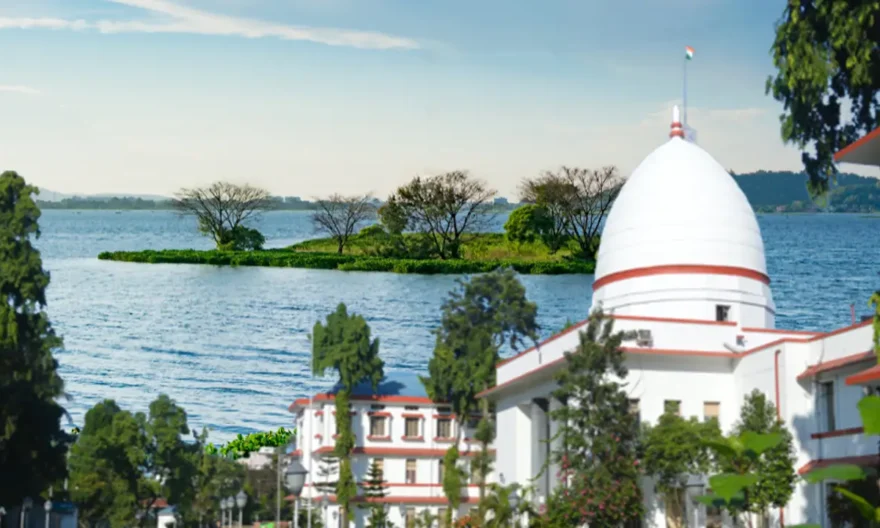
The Gauhati High Court has recently put forward certain measures for the State Government to consider regarding the safeguarding, enhancement, and beautification of the Deepor Beel lake’s biodiversity.
A division bench of Chief Justice Sandeep Mehta and Justice Suman Shyam, presented these suggestions in response to a Public Interest Litigation (PIL) that brought attention to the various challenges and issues affecting the protection of the Deepor Beel water body.
This lake serves as a habitat for numerous rare and endangered species of plants, animals, and birds. The petitioners (Pramod Kalita & 2 Ors) have raised concerns about the uncontrolled dumping of waste and sewage into the lake, posing a severe threat to its very existence.
In its affidavits, the State Government has expressed its keenness and commitment to ensuring the preservation, enhancement, and aesthetic improvement of the water body. The government intends to accomplish this while adhering to the provisions of the Wetland Protection Act, 1972.
About
Deepor Beel is a significant lake with a total area of 40.14 Sq. Kms., out of which 4.1 Sq. Kms. was designated as a wildlife sanctuary by the Assam government in 1989. This lake holds the status of a wetland under the “Ramsar Convention,” and in November 2002, it was enlisted as a Ramsar Site due to its environmental and biological importance. This designation aims to facilitate conservation measures for the lake. Surrounding the lake, there are 12 villages located on its periphery.
The suggestions
The bench has noted that the following measures and suggestions, if taken into account and applied, can significantly contribute to the protection, beautification, and enhancement of the biodiversity of the lake:
- Considering the construction of a promenade, cycling track, and walking track around the entire lake’s periphery. This could open up possibilities for organizing national and international sporting events.
- Curbing all potential encroachments in and around the lake by establishing permanent encumbrance on the lake periphery.
- Exploring the establishment of dedicated facilities for promoting tourism, such as food courts, entertainment zones, and parks alongside the promenade.
- Addressing the issue of water hyacinth, an invasive aquatic plant, by systematically and plannedly removing it from the lake. Its growth has adverse effects on the aquatic life and birds dependent on the lake’s food sources.
- Utilizing the extracted water hyacinth for producing eco-friendly handicraft items like bags and mats, potentially creating employment opportunities and promoting a sustainable handicraft industry.
- Considering the introduction of boating activities using non-fossil fuel-powered vehicles like rowing boats, paddle boats, and electrically powered boats to boost tourism.
- Installing sewerage treatment plants at all entry points to the lake to minimize the discharge of harmful chemicals and pollutants. Strictly prohibiting solid waste dumping in and around the lake.
- Exploring the possibility of maintaining the lake’s water table at a specific level during the monsoon and receding periods by lifting water from the Brahmaputra river. This will help preserve the fauna and flora thriving in the lake.
- Once the mechanism to maintain the optimum water level is in place, the State Government may consider organizing aquatic sports like rowing and kayaking, excluding fossil fuel-powered vessels.
- Regulating or curtailing any commercial fishing activities in the lake.
- Implementing the above measures could significantly boost tourism, stimulate investment opportunities, employment, and eco-friendly development in the entire lake vicinity.
- The introduction of the cycle track and aquatic sports is likely to attract sports enthusiasts from both the country and abroad, possibly leading to hosting significant sporting events at the lake and its constructed tracks.
Advocate General D. Saikia assured the court of the State Government’s tremendous concern for the lake’s conservation and proposed filing an affidavit to formally accept and implement the suggestions.
The matter is scheduled for further hearing on 24 August, 2023.




